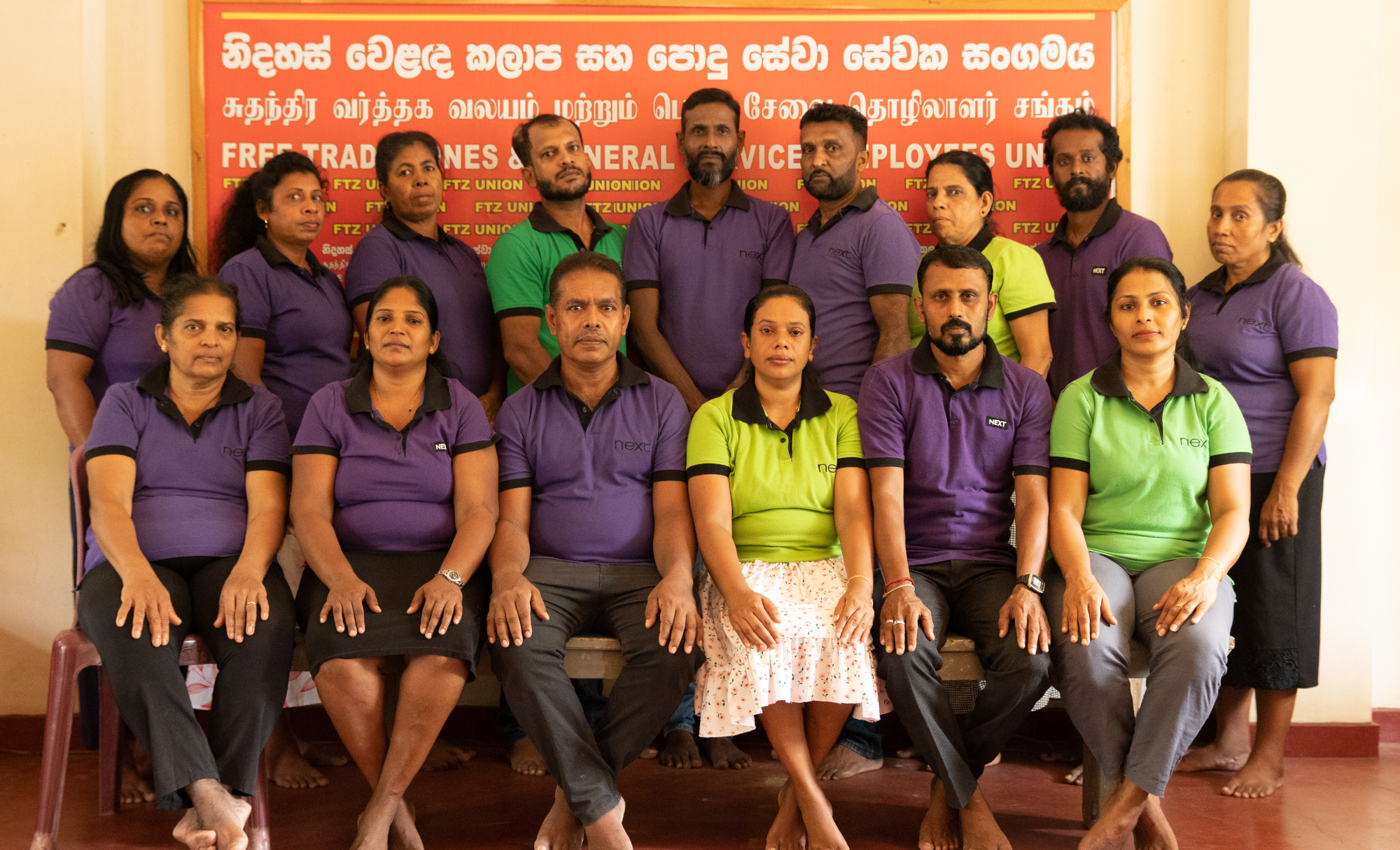NEXT raises profit forecast again – but when will their workers get a share?
On 29th October, NEXT PLC 3rd Quarter Trading Statement reported strong sales and a further profit upgrade, lifting its forecast by £30 million (40m USD) to £1.135 billion and hinting at an additional shareholder payout. NEXT’s share price jumped 5% on the news. But behind these success metrics is another story — of workers who won’t get a share of this wealth.
NEXT refuses transparency on paying a Living Wage to its UK workers, opposing a motion from investors and Share Action at its AGM in May 2025. And in Sri Lanka, after announcing record profits of over £1 billion, 1,416 unionised workers at NEXT’s Katunayake factory were dismissed by WhatsApp on 19th May, after the company claimed their modest wage rise — worth around £10 a month — made the factory unprofitable.
The Katunayake factory is one of three Sri Lankan factories directly owned by the NEXT group - and the only unionised facility, where through their union workers had won better pay and working conditions. NEXT broke a binding Agreement by closing the factory overnight without consultation. It was union-busting.
As NEXT celebrates adding £30 million to its record-breaking profits and prepares further payouts for shareholders - following its September announcement of £99 million in shareholder dividends - the company’s actions expose the stark inequality between those who make clothes and those who profit from their labour in the fashion industry.
Ruth Ogier from War on Want: “NEXT’s profits keep rising — but shutting down a unionised factory and calling it unprofitable tells us everything about who gets rewarded in this system. How much profit does it take before workers earn a Living Wage?”
As news coverage on NEXT congratulates them on business success we ask: Why is a billion-pound UK retailer, in its most profitable period ever, shutting down a factory where workers had successfully achieved better working conditions and pay through unionisation? And when will there ever be enough profit to pay a Living Wage?
Statement by War on Want, Labour Behind the Label and Clean Clothes Campaign
Further information:
- The £10 a month wage rise mentioned above is based on the basic monthly salary for an ‘A’ grade operator in the Katunayake factory of Rs 45,000 and in the non-unionised NEXT factories the same grade is paid Rs 40,050. The additional LKR 4,950 is equivalent to approx. £10 in GBP. This difference in wages is due to the collective bargaining efforts of the FTZ & GSEU union.
- Sri Lanka Factory Closure – Joint statement from FTZ&GSEU, Clean Clothes Campaign, War on Want, and Labour Behind the Label: NEXT shuts down its only unionised factory in Sri Lanka after posting £1.08 billion profit forecast.
- Wages in Sri Lanka garment industry: Context for the closure of Next Manufacturing Ltd Katunayake plant, Labour Behind the Label.
- UK Living Wage transparency vote: 26.9% of shareholder votes supported a resolution calling for more transparency on wage setting, Independent.
